Clinical Training Program
The clinical rotation schedule for our residency is designed to provide:
- A broad-based clinical experience in general and sub-specialty Obstetrics and Gynecology, including ambulatory and primary care aspects
- Opportunities to become skillful in the performance of surgical and technical procedures related to our specialty
- Graded responsibility and interpersonal skills suitable to become an effective and compassionate physician
These training goals are accomplished by providing complete clinical experiences on a variety of hospital and ambulatory services. Residents, faculty and nursing specialists form functional patient care teams in these settings. Faculty play the role of senior consultants with Chief Residents being responsible for patient management decisions and coordinating the energies of each team. Formal and informal teaching by residents and faculty takes place daily to include the educational needs of all learners. Residents are assigned graded clinical and teaching responsibilities as they progress through the program. Our faculty prides itself on balancing resident autonomy with active faculty supervision.
Obstetrics
Residents rotate on both inpatient and outpatient services. The obstetrics service/rotation provides antepartum, intrapartum and postpartum care for both high-risk and normal pregnancies. Residents are exposed to genetics, sonography, critical care obstetrics, vaginal and operative delivery and a wide variety of antepartum complications during this rotation.
General Gynecology
The general gynecology service provides operative and consultative services for the medical center. During this rotation, residents gain experience a wide variety of surgical procedures, including exploratory laparotomy, total abdominal hysterectomy, vaginal hysterectomy, laparoscopic and robotic hysterectomy, and salpingo-oophorectomy. They also become proficient in minimally invasive techniques including operative hysteroscopy, laparoscopic suturing and knot-tying, single site surgery, and robotic pelvic surgery. Our residents have access to the simulation center 24 hours per day, to allow them to complete skills on the laparoscopic trainer according to the Fundamentals of Laparoscopic Surgery guidelines. As residents gain experience and demonstrate competence, they will evolve to performing procedures as the primary surgeon.
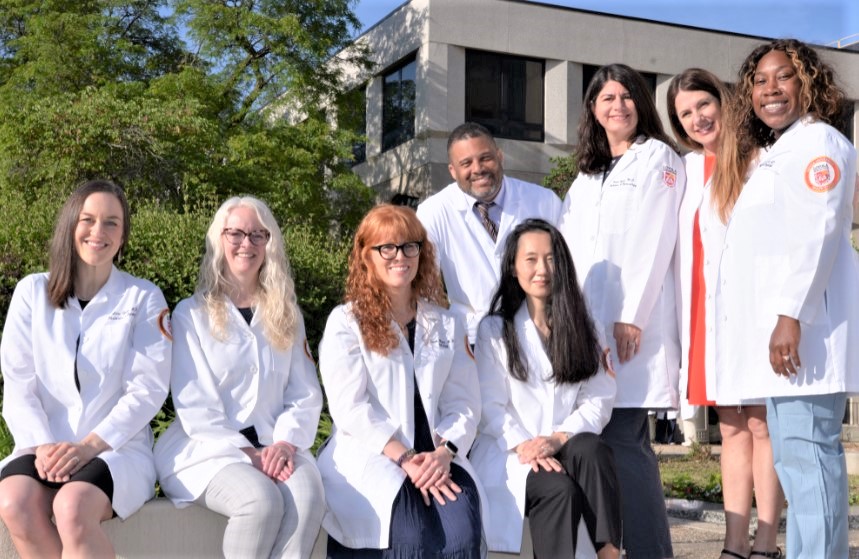
Additional educational experience offered during the Gynecology rotation include the following:
- Hines VA Ambulatory Clinic: Under the direct supervision of Dr. Freager Williams, the Tuesday Hines VA clinic allows residents to provide gynecologic care for women veterans of the armed services. Common care topics for this population include contraceptive management, outpatient surgical procedures and major gynecologic surgeries. The URPS division, under the direction of both Dr. Laura Glaser and Dr. Lauren Westbay, have a weekly Thursday clinic and/or OR session that treats veterans with urogynecologic conditions and/or in need of minimally invasive gynecologic surgery.
Urogynecology Reconstructive Pelvic Surgery
The urogynecology rotation provides experience in surgical and non-surgical urogynecology. During this rotation, the resident will advance their knowledge of the subspecialty and function under the supervision of the FPMRS faculty, fellows and staff. It is expected that the resident acquires the skills necessary to evaluate and treat women with routine pelvic floor disorders, including urinary incontinence, fecal incontinence, and pelvic organ prolapse. In addition, the resident learns to assist with care of tertiary care patients, while gaining an understanding of appropriate indications for subspecialty consultation. Residents develop competence with performance of a comprehensive new patient evaluation, in order to determine whether empiric treatment or further evaluation is necessary to plan treatment. Residents will gain experience with patient counseling regarding first-line treatment options, including midurethral sling and common primary prolapse procedures.
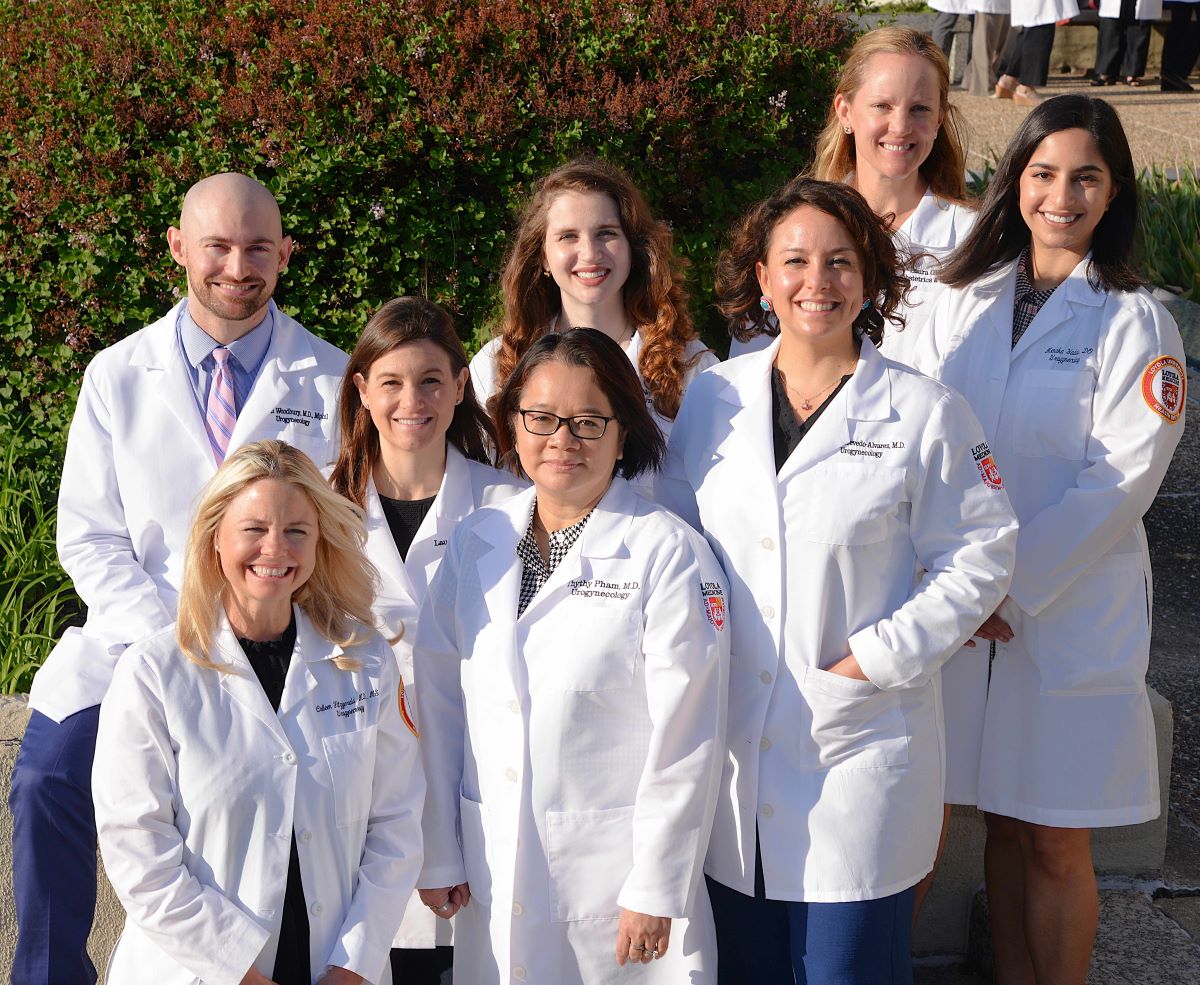
Gynecologic Oncology
The gynecologic oncology service provides multi-disciplinary care for the oncology patient and residents are exposed to radical procedures, chemotherapy, radiation therapy and breast management. The surgical education on this rotation is robust, allowing residents to develop and strengthen their skills in laparotomy, laparoscopy, and robotic surgery. Learning the finer points of complex cancer staging procedures and postoperative care are the highlights of this rotation. Residents also participate in ambulatory faculty oncology clinics to learn the workup and management of gynecologic cancers from the beginning, following them through their surgeries to the postop period as well.
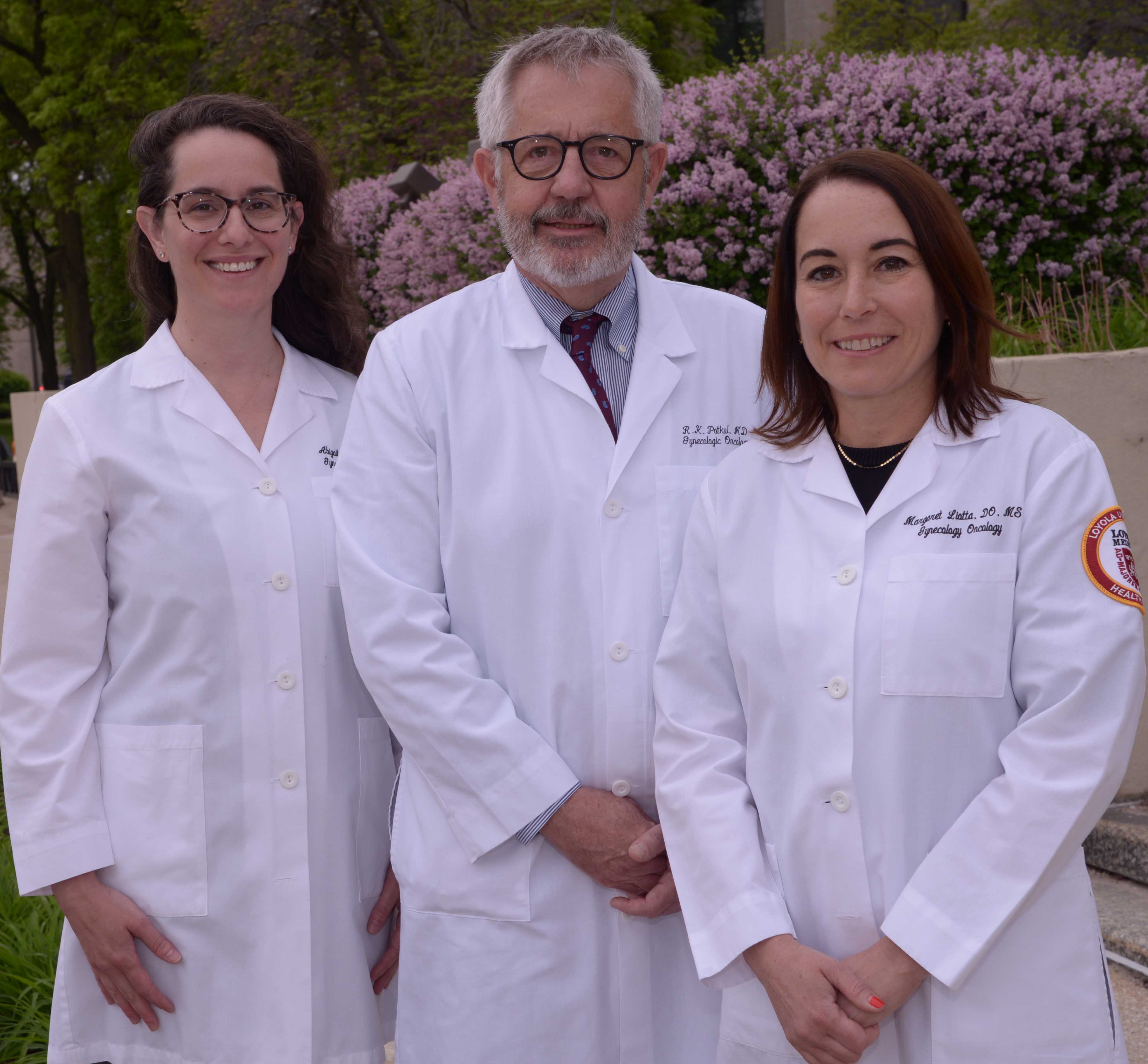
Maternal-Fetal Medicine
The maternal-fetal medicine resident rotation provides an educational and clinical experience in which the resident is introduced to the sub-specialty of high-risk obstetrics. This includes learning about the variety of medical maternal complications and perinatal genetic diagnosis, as well as the critical care of complex perinatal complications. At the end of the rotation, residents will be able to effectively manage patients with a variety of high-risk issues, including a history of preterm birth, abnormal fetal growth or multiple gestation. They will also feel comfortable managing patients with pre-existing medical conditions such as insulin dependent diabetes, chronic hypertension, thyroid disease, cardiovascular disease, pulmonary disease, and renal disease.
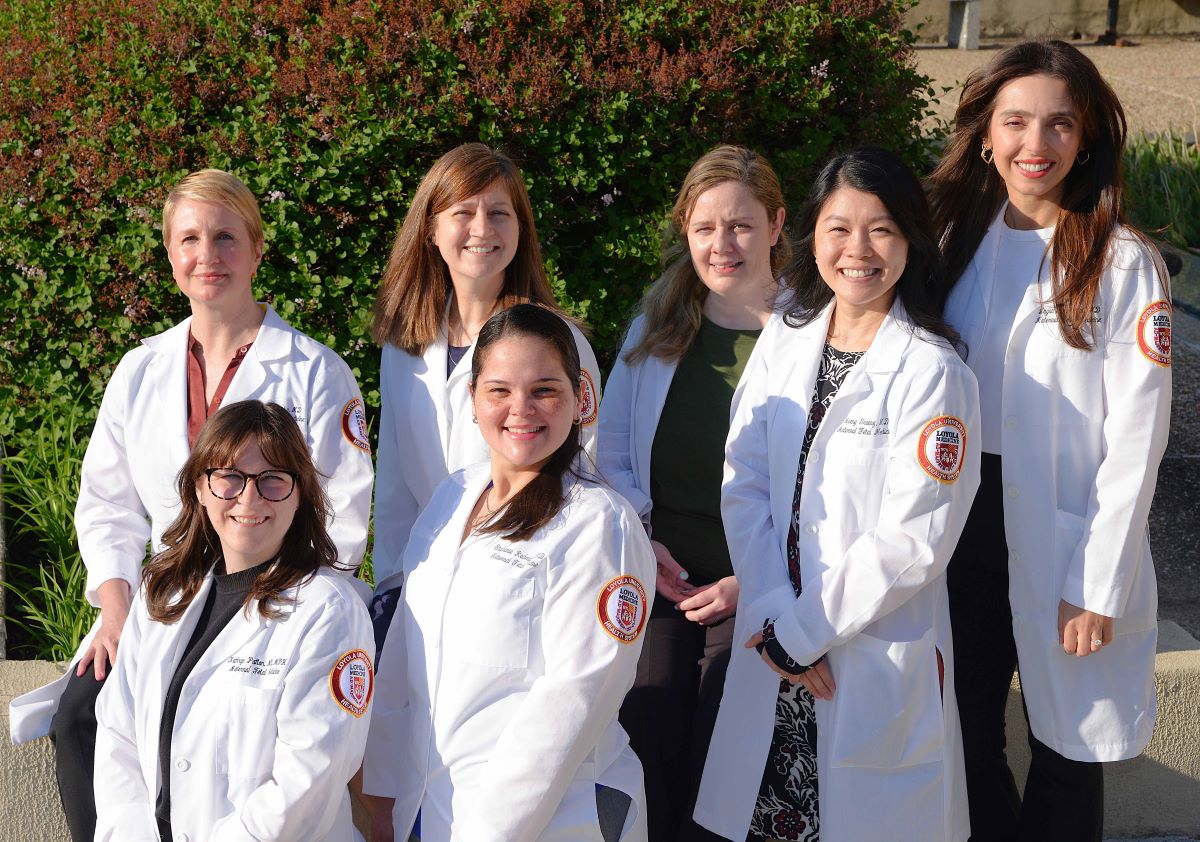
MacNeal Hospital OB/GYN Rotation
The rotation at Loyola Medicine's MacNeal Hospital provides residents with an OB/GYN rotation in a community hospital.
MacNeal Hospital is a 374-bed teaching hospital in Berwyn, Illinois, with over 550 medical staff members in 50 specialties, advanced inpatient and outpatient medical, surgical and psychiatric services and advanced diagnostics and treatments in a community setting. Residents are provided the knowledge and experience to recognize the physiologic changes of pregnancy and recognize factors in the history and physical examination that indicate possible medical or obstetric complications.
Residents obtain and apply information from the history, physical examination and diagnostic studies to evaluate the course of pregnancy. During the gynecologic portion of the rotation, they receive clinical experience managing surgical patients or medical care of gynecological conditions, consultations for patients in the Emergency Department or other hospital units with gynecologic complaints. Working with a team of colleagues from other residency programs, they provide a collaborative team approach to caring for both obstetric and gynecologic patients.
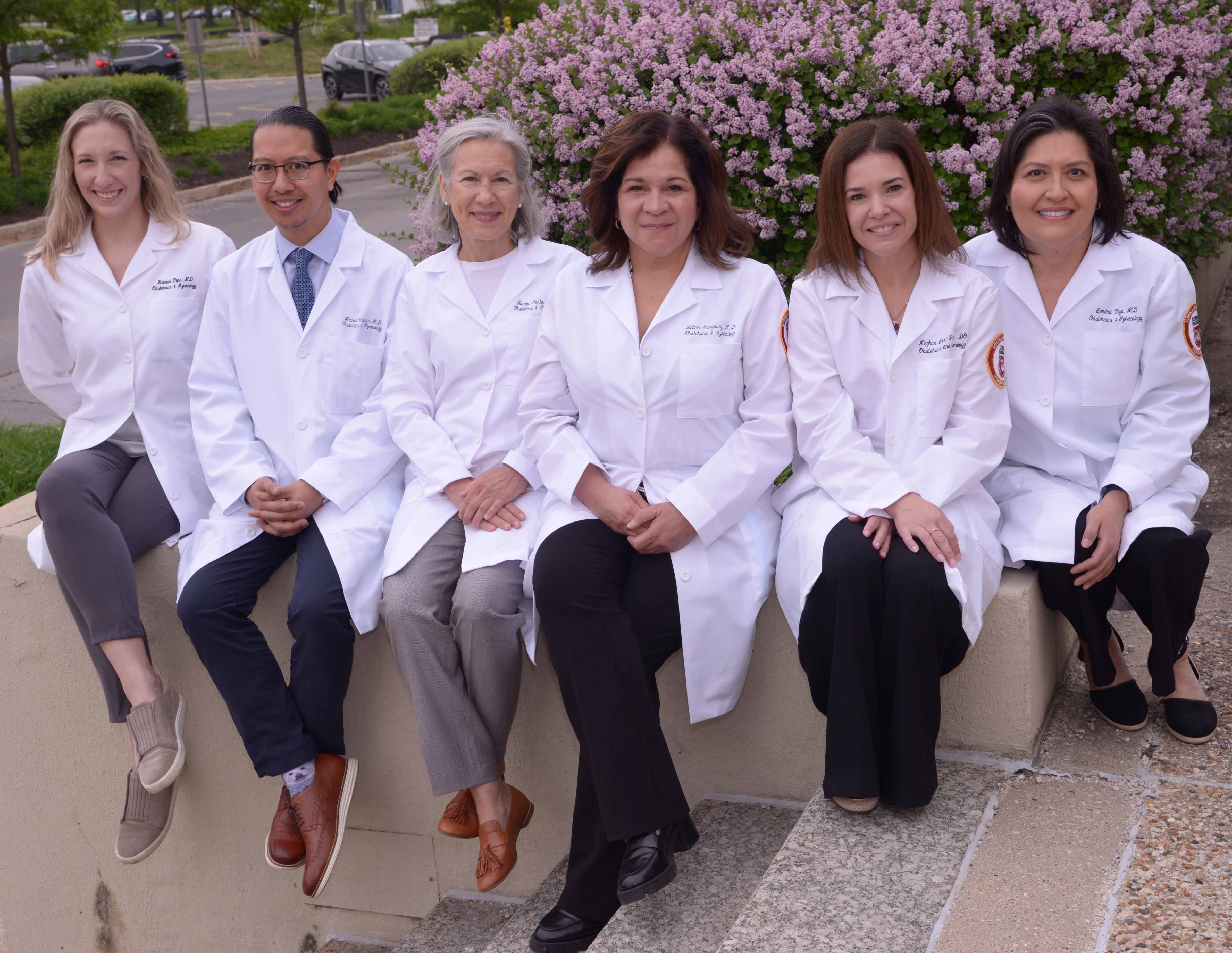
Reproductive Endocrinology and Infertility
The resident on the Reproductive Endocrinology service rotates between two campuses, LUMC and Fertility Centers of Illinois. Residents are exposed to the proper evaluation of the infertile couple, reproductive endocrinopathies and the management of the postmenopausal woman. Training in operative laparoscopy/hysteroscopy and assisted reproductive technologies in provided on both an in-patient and ambulatory basis.
Family Planning Rotation
The Family Planning rotation at the University of Illinois, Chicago campus provides the OB/GYN residents with the comprehensive educational skills needed for the management of contraception and family planning. PGY 2 and PGY 3 residents rotate on this service under the direct supervision of the faculty at the University of Illinois at Chicago.
Continuity Clinic
The Resident Continuity Clinic provides a dedicated ambulatory experience for resident education at Loyola. This daily resident-managed clinic functions on a par with private faculty clinics. Residents provide primary care, routine and high-risk prenatal care, sonography and general and sub-specialty gynecologic services under faculty supervision. A faculty consultant attends each clinic session to review patient care plans and teach ambulatory concepts.